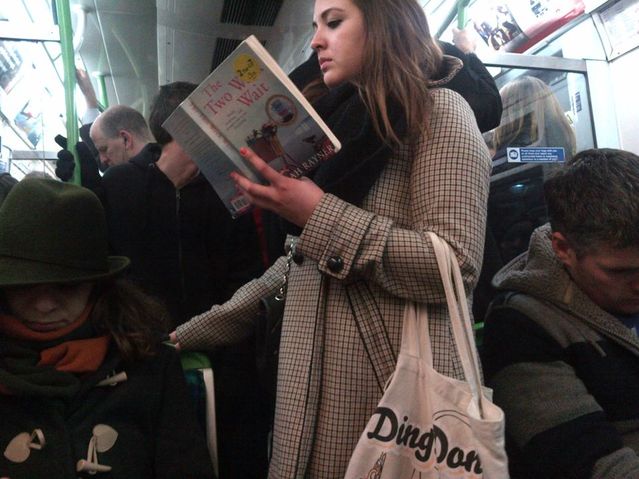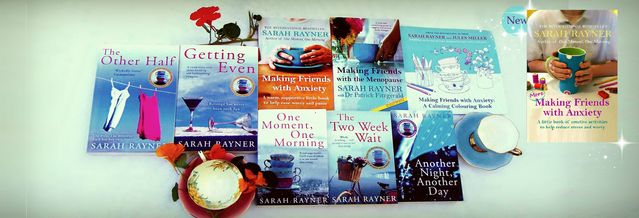Career
What Does the Loss of David Bowie Teach Us about Ourselves?
Death makes critics of us all, but there's no such thing as total objectivity.
Posted January 15, 2016
Source: Sarah RaynerAlong with thousands of others, I felt sad to hear of the death of David Bowie this week. As social media went into meltdown, it also set me thinking.


From what I read online, one minute he was being described as an evil woman hater, the next the saviour of the gay community. Some thought him a god, others a genius, many felt he’s over-rated – the list goes on. But unless he really was an alien, chances are he was just a human being. He was extremely talented, yes, and left us with a catalogue of great music. But he had faults, and probably did things he later wasn’t proud of. He’s not here to refute the accusations or decline the deification, so we are free to paint him as we wish.
One of the hazards of being a creative person is that others are inclined to see you and your work as they want to. There is no such thing as an objective critique. I discovered this myself when I started writing fiction; one person’s 1* book is another person’s 5* read, and initially I found it hard to take when people didn't like my writing. It didn't resonate for them, or if it did, it resonated in the way they didn't appreciate: they didn’t want to read about extra-marital affairs, women who fell in love with other women, books that used English phrases not American ones.

It took several years and a course of CBT for me to see this more objectively. Perhaps the start was when I got a letter from a woman in her seventies who read my third novel, One Moment, One Morning as if it told the story of the mother of one of the characters – Irene. How curious, I thought, because from my point of view, there are three protagonists in the book; Karen, Anna and Lou. Irene is Lou’s mum, and she plays a secondary role. Yet as I read more of this reader’s letter, I came to understand. Irene had many experiences which resonated with the reader’s own. In the novel, Lou is gay and finds coming out to her mother – who is traditional and not good at talking about emotions – hard. I wrote the narrative from Lou’s point of view, yet my reader, who also has a daughter who is gay, read it from Irene’s. It was a nice letter. She said she’d found it a relief to read about a woman who felt as she did, and that although she was struggling to accept her daughter’s sexuality, she was getting there, gradually. We ended up corresponding for many emails, and she was happy to tell me more about herself so I could flesh out Irene in the follow-up novel, The Two Week Wait.
But I don’t write novels or make albums, you might be thinking, so what all this got to do with me? Well, here’s the thing: we each bring our own perspective to everything, all the time, be it someone else’s creative work, someone else’s actions, or someone else’s life choices, and this can make us critical of them. If you’re struggling to comprehend this idea – and I’ve struggled with it too – here’s another illustration that might help.

One day, on the aforementioned CBT course, the guy running it gave a group of us a simple exercise.
‘I want you to picture yourself taking a lemon, putting it on a chopping board, and slicing into it with a knife,’ he said.
I closed my eyes and did so, as did the rest of the group. Then he asked each of us to describe what we’d imagined.
‘I took a lemon from the ceramic fruit bowl in our kitchen, and sliced it with a knife I picked from a magnetized strip on our wall,’ I said.
‘And the board?’ he asked.
‘Wooden and worn,’ I explained.
‘Mine was melamine,’ said the woman on the sofa next to me.
‘Mine was glass,’ said the man opposite. Someone else was slicing lemon to make a Gin and Tonic, and so it went on.
As a writer, this helped me to see that every single sentence has as many different interpretations as it does readers, and went a long way to explaining how one person’s positive encounter with an author’s work might be another’s negative experience. There is no way I can control these responses – and nor can anyone putting creative work out there, be they Bowie or Beyoncé, Redford or Rickman. To try and do so is as futile as trying to control someone’s thoughts.
Even if you’re not actively involved in creative work, but you’re someone who finds it hard to take criticism, understanding that it always comes from the personal perspective of the critic can be helpful in stopping it eating away at our self esteem. It distances us from the harshness of words and lessens their impact when they’re directed at us, and from small shifts like these we can become bigger-hearted and more empathetic, and thereby with act with greater humanity.



